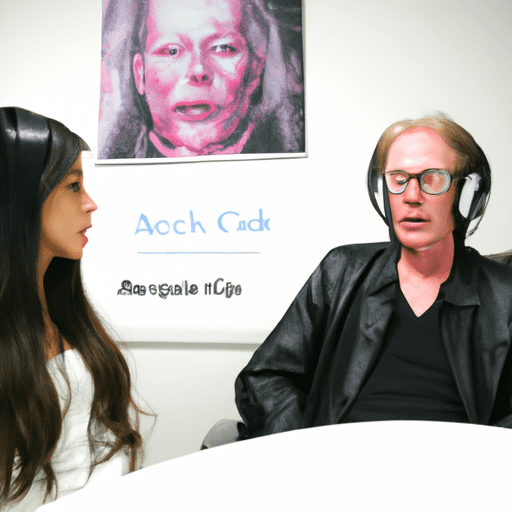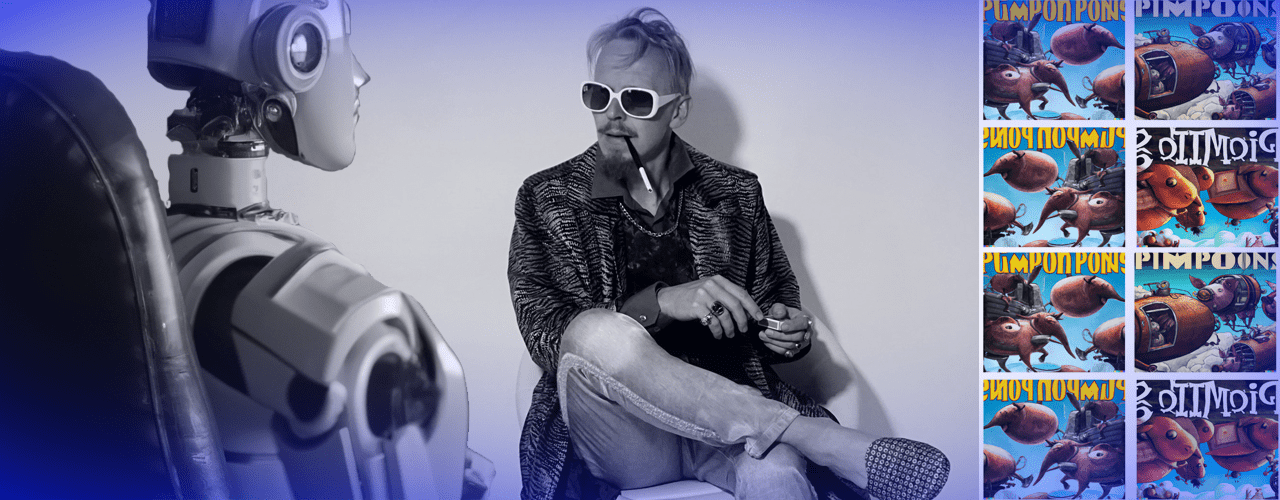Exploring the Creative Potential of AI: An Interview with Robert Clip
Robert Clip is a pioneer in the field of artificial intelligence (AI) and its creative potential. He has been exploring the possibilities of AI for over a decade, and his work has been featured in numerous publications, all around the world. In this interview, Clip discusses his research and the potential of AI to create art, music, and literature.
AI JACK: What inspired you to explore the creative potential of AI?
Robert: I’ve always been fascinated by the power of computers to process and analyze data. I was particularly intrigued by the idea of using AI to create something new and unique. I wanted to see if AI could be used to generate art, music, and literature that was as creative and expressive as anything created by humans.
AI JACK: What have been some of the most interesting results of your research?
Robert: One of the most interesting results of my research has been the development of AI-generated music. We’ve been able to create music that is both emotionally evocative and technically complex. We’ve also been able to generate AI-generated literature that is surprisingly expressive and engaging.
AI JACK: What do you think are the most exciting possibilities for AI-generated art and literature?
Robert: I think the most exciting possibilities for AI-generated art and literature are in the realm of storytelling. AI can be used to generate stories that are both emotionally engaging and technically complex. We’re also exploring the potential of AI to generate art that is visually stunning and emotionally powerful.
AI JACK: What advice would you give to someone interested in exploring the creative potential of AI?
Robert: My advice would be to start small and experiment. AI is a powerful tool, but it’s important to remember that it’s still a tool. It’s important to understand the fundamentals of AI and to experiment with different approaches. It’s also important to remember that AI is still in its early stages, so it’s important to be patient and open-minded.
How AI is Transforming the Music Industry: An Interview with Robert Clip
The music industry is undergoing a major transformation due to the emergence of artificial intelligence (AI). AI is being used to create new music, analyze data, and even help with marketing and promotion. To gain a better understanding of how AI is impacting the music industry, we interviewed Robert Clip, a music industry expert and AI consultant.
AI JACK: How is AI transforming the music industry?
Robert: AI is revolutionizing the music industry in a number of ways. AI-powered music creation tools are allowing musicians to create new music faster and more efficiently than ever before. AI is also being used to analyze data from streaming services, helping labels and artists understand their audiences better and make more informed decisions. Finally, AI is being used to help with marketing and promotion, allowing labels and artists to target their audiences more effectively.
AI JACK: What are some of the challenges that AI presents to the music industry?
Robert: One of the biggest challenges that AI presents to the music industry is the potential for AI-generated music to replace human-created music. AI-generated music can be created quickly and cheaply, and it can be difficult to distinguish from human-created music. This could lead to a decrease in the demand for human-created music, which could have a negative impact on the industry.
AI JACK: What advice would you give to musicians and labels who are looking to take advantage of AI?
Robert: My advice would be to start small and experiment with different AI tools and technologies. AI is still a relatively new technology, and it can be difficult to know which tools and technologies will be most effective. It’s important to experiment and find out what works best for you. Additionally, it’s important to stay up to date on the latest developments in AI, as the technology is constantly evolving.
Impact of AI on Music Composition: An Interview with Robert Clip 
Robert Clip is a composer and producer who has been working in the music industry for over 20 years. He has seen the impact of artificial intelligence (AI) on music composition and production, and he has some interesting insights to share. In this interview, we discuss the impact of AI on music composition and production, and how it has changed the way music is created.
AI JACK: What do you think is the biggest impact of AI on music composition?
Robert: I think the biggest impact of AI on music composition is the ability to create music quickly and efficiently. AI can generate music in a fraction of the time it would take a human composer, and it can do so with a level of accuracy and detail that would be impossible for a human to achieve. AI can also be used to create music that is more complex and interesting than what a human composer could create. This has opened up a whole new world of possibilities for music composition.
AI JACK: How has AI changed the way music is produced?
Robert: AI has changed the way music is produced in a number of ways. For one, AI can be used to automate certain aspects of the production process, such as mixing and mastering. This can save time and money, as well as improve the quality of the final product. AI can also be used to create more complex and interesting sounds, which can add a unique flavor to a track. Finally, AI can be used to create music that is more emotionally engaging, as it can take into account the listener’s preferences and create music that is tailored to them.
AI JACK: What do you think the future of AI in music composition and production looks like?
Robert: I think the future of AI in music composition and production looks very bright. AI is already being used in a variety of ways to create music, and I think this trend will only continue to grow. AI will become more sophisticated and will be able to create more complex and interesting music. It will also be used to create music that is tailored to the listener’s preferences, which will make music more engaging and enjoyable. Finally, AI will be used to automate more aspects of the production process, which will make music production faster and more efficient.
The Future of AI in the Arts: An Interview with Robert Clip
Robert Clip is a renowned expert in the field of artificial intelligence (AI) and its applications in the arts. In this interview, he shares his insights on the future of AI in the arts and how it can be used to create new and innovative works of art.
AI JACK: What do you think is the potential of AI in the arts?
Robert: AI has the potential to revolutionize the way we create and experience art. AI can be used to generate new and unique works of art, as well as to enhance existing works. AI can also be used to create interactive experiences that allow viewers to explore and interact with art in new and exciting ways. AI can also be used to analyze and interpret existing works of art, allowing us to gain new insights into the creative process.
AI JACK: What challenges do you think AI will face in the arts?
Robert: One of the biggest challenges AI will face in the arts is the lack of understanding of the creative process. AI is still in its infancy when it comes to understanding the nuances of the creative process, and it will take time for AI to develop the ability to truly understand and appreciate the creative process. Additionally, AI will need to be able to recognize and appreciate the unique qualities of different works of art, as well as the context in which they were created.
AI JACK: What do you think the future of AI in the arts looks like?
Robert: I believe that AI will continue to play an increasingly important role in the arts. As AI becomes more sophisticated, it will be able to generate more complex and unique works of art, as well as to analyze and interpret existing works of art in new and interesting ways. Additionally, AI will be able to create interactive experiences that allow viewers to explore and interact with art in new and exciting ways. Ultimately, I believe that AI will become an integral part of the creative process, allowing us to create and experience art in new and innovative ways.
Exploring the Possibilities of AI in Music: An Interview with Robert Clip
In recent years, artificial intelligence (AI) has been making its way into the music industry, with applications ranging from music composition to sound engineering. To gain a better understanding of the potential of AI in music, we spoke with Robert Clip, a professor of music technology at the University of California, Los Angeles.
AI JACK: What do you think are the most exciting possibilities for AI in music?
Robert: I think the most exciting possibilities for AI in music are in the realm of composition. AI can be used to generate new musical ideas, create unique sounds, and even compose entire pieces of music. AI can also be used to analyze existing music and identify patterns and trends, which can be used to create new music that is informed by the past.
AI JACK: What challenges do you think AI will face in the music industry?
Robert: One of the biggest challenges for AI in the music industry is the fact that music is a highly subjective art form. AI algorithms can generate interesting and unique sounds, but it is difficult to create something that is truly creative and emotionally resonant. Additionally, AI algorithms can be used to identify patterns in existing music, but it is difficult to create something that is truly original and innovative.
AI JACK: What do you think the future of AI in music looks like?
Robert: I think the future of AI in music is very bright. As AI technology continues to improve, I believe we will see more and more applications of AI in the music industry. AI can be used to create new sounds, compose new pieces of music, and even identify trends in existing music. Additionally, AI can be used to analyze and understand the emotional content of music, which could lead to more emotionally resonant compositions.



/5Total reviews
Persons recommended this product
Filter by
star Rating
attach_file Attachments
Anonymous
Shopper
check_circle Verified
Shop owner replied
Was this helpful
Facebook
X (Twitter)
LinkedIn
Reddit
Copied to Clipboard
Anonymous
Shopper
check_circle Verified
Shop owner replied
Was this helpful
Facebook
X (Twitter)
LinkedIn
Reddit
Copy Link
Thanks for your review!
Your feedback helps us improve our service.
There are no reviews yet.
Be the first to review “ ”
Only logged in customers who have purchased this product may leave a review